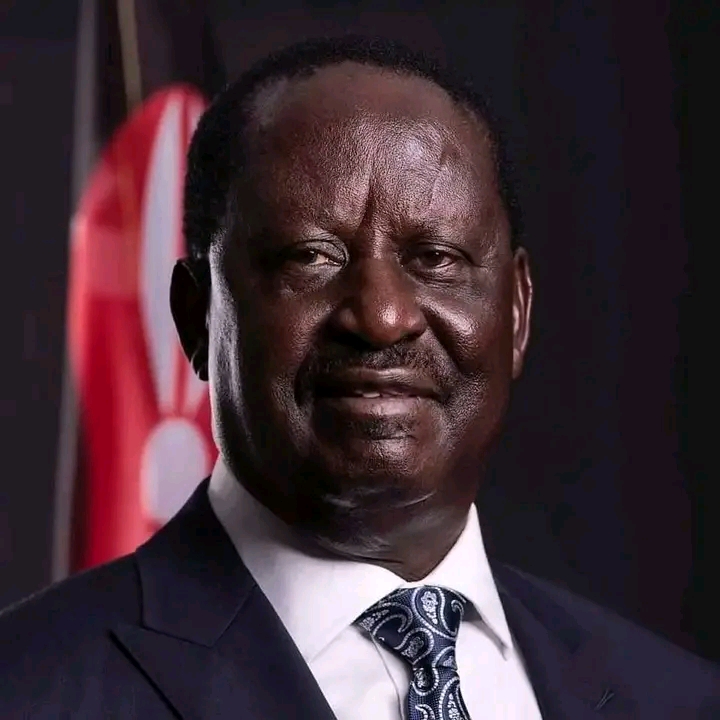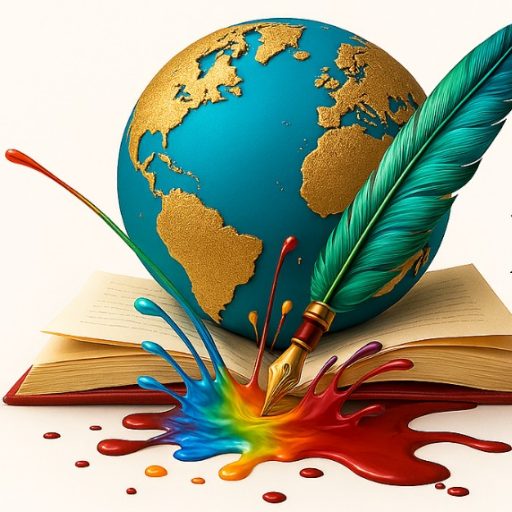By Bonface Otieno

The Sunset of a Giant: Kenya and Africa Mourn the Passing of Rt. Hon. Raila Amolo Odinga
By [Bonface Otieno]
The morning of October 15, 2025, will forever remain etched in the collective memory of a nation and a continent. Kenya and the entire African fraternity woke up to the devastating news of the passing of Rt. Hon. Raila Amolo Odinga, a towering statesman, Pan-African icon, democracy crusader, and the indomitable spirit behind Kenya’s decades-long struggle for reform, equality, and good governance. His death marks not only the end of an era but also leaves an irreplaceable void in the heart of Kenyan politics, the Orange Democratic Movement (ODM), and the spirit of devolution and democracy that he so passionately championed.
Early Life and Education
Born on January 7, 1945, in Maseno, Nyanza, Raila Odinga was the son of Kenya’s first Vice President, Jaramogi Oginga Odinga, and Mary Juma Odinga. Raised in a politically conscious household, Raila grew up witnessing the ideals of justice, freedom, and African self-determination — virtues that would later define his life.
He attended Kisumu Union Primary School and later Maranda High School, before proceeding to the Herder Institute in Leipzig, East Germany, where he pursued a degree in Mechanical Engineering. His years abroad exposed him to global liberation movements and socialist ideals that shaped his philosophy of governance — one anchored in equality, fairness, and people-centered leadership.
Political Journey and the Struggle for Democracy
Raila Odinga’s political journey is deeply intertwined with Kenya’s long road to democracy. Rising to prominence in the 1980s, he became a fearless voice in the clamour for multiparty democracy, enduring years of detention and political persecution under the KANU regime. His unwavering courage earned him the enduring nickname “Baba” — the father of Kenya’s second liberation.
In the 1990s, he joined Forum for the Restoration of Democracy (FORD), following in the footsteps of his father. Later, he formed the National Development Party (NDP), which briefly merged with KANU before Raila took a bold stand in opposition once again, embodying the essence of political conviction.
His defining political moment came in 2002, when his historic “Kibaki Tosha” declaration unified the opposition and paved the way for Kenya’s first democratic transition of power. As Minister for Roads, Public Works and Housing, Raila earned praise for his vision and transformative infrastructure agenda.
The 2007 General Election tested Kenya’s democracy, culminating in a contested result and post-election violence. The ensuing Grand Coalition Government saw Raila serve as Kenya’s second Prime Minister (2008–2013), a period in which he championed national reconciliation, institutional reform, and the promulgation of the 2010 Constitution — his most enduring legacy.
Raila went on to contest the 2013, 2017, and 2022 elections, standing tall as the moral compass of Kenya’s democracy. His belief in dialogue and reform over vengeance and division cemented his place as one of Africa’s most respected leaders.
A Pan-African and Global Statesman
Beyond Kenya, Raila Odinga was an influential Pan-African statesman. His appointment as the African Union High Representative for Infrastructure Development in Africa amplified his continental footprint. He advocated tirelessly for regional integration, modern transport corridors, and trade connectivity under the African Continental Free Trade Area (AfCFTA).
Raila’s friendships with world leaders and intellectuals — from Nelson Mandela to Thabo Mbeki, Kofi Annan, and Barack Obama — reflected his deep commitment to Africa’s unity and progress. His global presence made him a beacon of democratic ideals and an articulate voice for the Global South.
The Sunset of a Legend
Raila Odinga’s death has plunged Kenya and Africa into mourning. Tributes continue to pour in from across the world — from presidents and prime ministers to ordinary citizens who saw in him the embodiment of hope and endurance. For many Kenyans, his passing is not just political but profoundly personal.
The ODM Party, which he founded and nurtured, faces the heavy task of sustaining his legacy of democracy, inclusivity, and justice. His absence leaves a political gap that will be difficult to fill — one that cuts across party lines, ethnic boundaries, and generations.
An Enduring Legacy
Raila Amolo Odinga was more than a politician; he was a philosopher of democracy, a visionary of devolution, and a symbol of national unity. His ideals will continue to shape Kenya’s governance, its youth, and its institutions for decades to come.
He will be remembered as the Father of Devolution, the People’s President, and the Eternal Flame of Freedom — a man who dared to dream and whose dream forever changed the course of Kenyan history.
As the nation lowers its flags and the continent bows in respect, one truth remains: Raila’s body may rest, but his spirit will live eternally in the heart of Africa.
WORLD AND AFRICAN LEADERS’ TRIBUTES
H.E. Dr. William Samoei Ruto, President of the Republic of Kenya:
> “Kenya has lost one of its greatest sons. Raila Odinga’s courage, intellect, and patriotism shaped our democracy. He may have been my political rival, but above all, he was a brother in the service of Kenya.”
Hon. Martha Karua, NARC Kenya Leader:
> “A true believer in justice and constitutionalism has rested. Baba fought not for himself but for every Kenyan who desired fairness and dignity.”
H.E. Azali Assoumani, Chairperson of the African Union and President of Comoros:
> “Africa has lost a statesman whose dream was a connected, prosperous, and peaceful continent. Raila Odinga’s service as AU High Representative will remain a milestone in our continental development.”
H.E. Cyril Ramaphosa, President of South Africa:
> “Raila Odinga walked in the path of Nelson Mandela — forgiving yet firm, revolutionary yet humble. His struggle was the struggle of every African who longs for freedom.”
H.E. António Guterres, United Nations Secretary-General:
> “Raila Odinga was a moral voice in turbulent times — a leader who stood for peace, justice, and dialogue. The world will remember him as a man who bridged divides.”
H.E. Barack Obama, Former President of the United States:
> “Raila was more than a political figure — he was a visionary who believed that democracy could heal nations. His passing is a loss not only to Kenya but to the world.”
Hon. John Mbadi, ODM National Chairman:
> “We have lost our father, mentor, and torchbearer. The Orange flame will never be extinguished — it will burn in every reformer who walks the path Raila Odinga carved.”
Fare the well Wuod Nyalego, Okeo Koneya.
As the sun sets on a life well-lived, the spirit of Rt. Hon. Raila Amolo Odinga transcends death — it becomes a call to every Kenyan to carry forward his dream of justice, unity, and progress.
Rest in Peace, Baba. Your struggle, your laughter, your courage, and your dream will live on.

